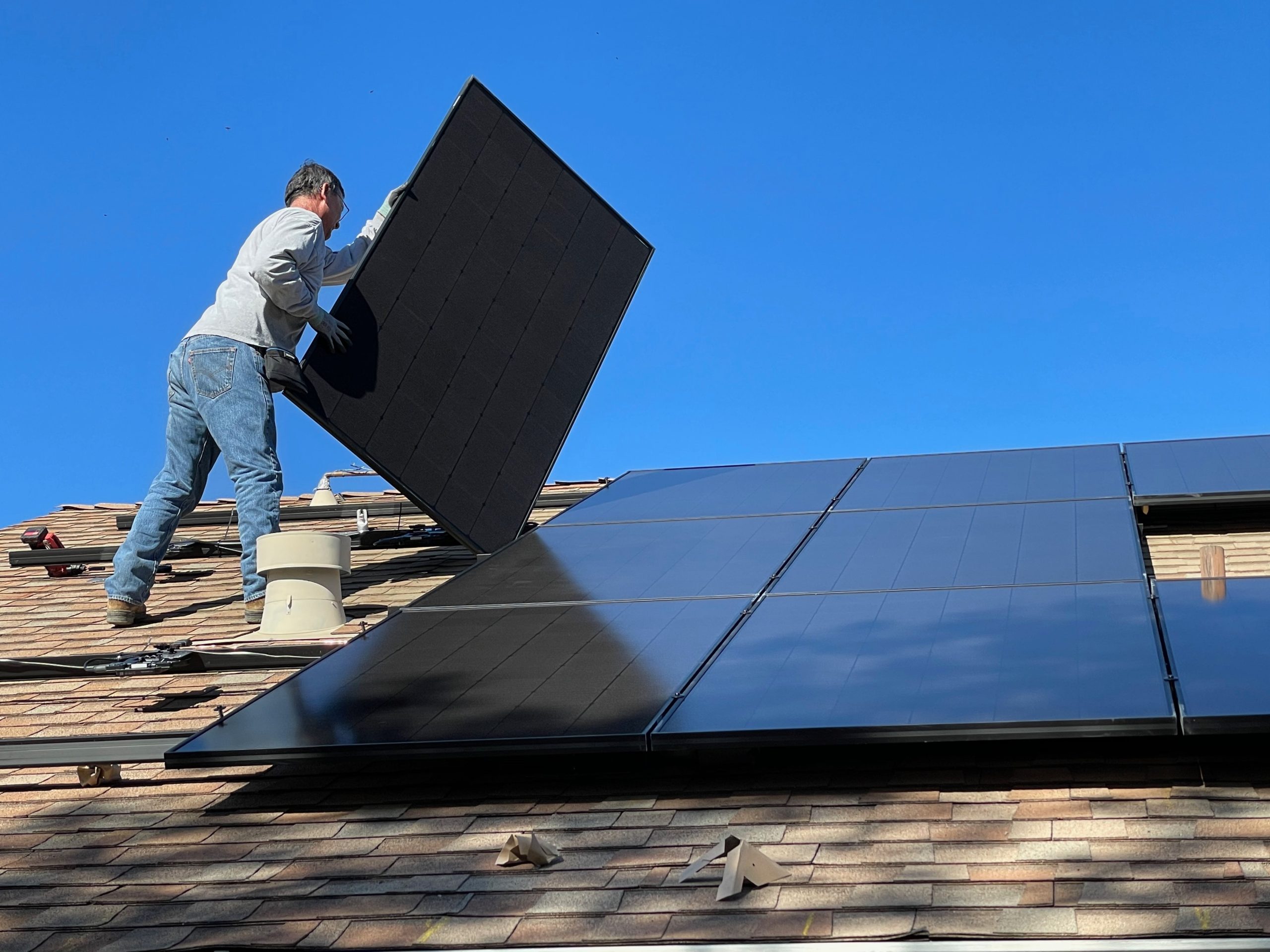Electricity Professor Peter Palensky has solar panels on his roof. That energy company Vandebron wants money for them doesn’t surprise him. “The grid is jammed,” he says.
Returning power is going to cost money. Still, solar panels deliver returns. (Photo: Bill Mead via Unsplash)
A fixed for solar power has prompted many households to buy solar panels. A fixed feed-in tariff for power from solar panels to the grid has encouraged many households to buy solar panels. So, is it not a strange policy to start taxing the ownership of solar panels now?
‘It is not a tax and it is not an energy policy,’ emails Dr Emile Chappin, Co-Director of the Energy Transition Lab at the Faculty of Engineering, Policy & Management (TPM). ‘Green power is badly needed and it is good that many households are investing in solar panels to meet our policy goals. The payback period of solar panels is favourable in a lot of cases and this fits with the rapid development in recent years. A tariff that makes a EUR 10-20 difference every month changes very little in the payback period of solar panels.’
“I had solar panels installed myself,” explains Professor Peter Palensky of Intelligent Electrical Networks (Faculty of Electrical Engineering, Mathematics and Computer Science). “The feed-in worked well until it was overtaken by its own success. Someone who lives near a transformer house can easily feed solar power back, but for someone who lives far away, the grid has to be reinforced. That costs money in what grid operators call imbalance and profiling costs. Until now, those costs have been shared among everyone that is connected, whether they feed in or not.”
‘The previous system was unfair’
What does Palensky think of the move by energy supplier Vandebron, which announced in mid-August that it would pass on grid costs to households with solar panels? “Let me admit that the previous system was unfair. Personally, I was happy with it because the return on investment period (of the solar panels, eds.) was so much shorter than in a fair system. Now Vandebron is trying to set up a fairer and more transparent system, and that works to my disadvantage. But as a scientist and a grid expert, I do say that something had to change.”
Will other energy suppliers follow suit? Chappin expects other providers to at least wait for the reactions. “It is a way of offering energy contracts. But this is only one aspect of those contracts. You need to look at the whole thing.”
Net metering abolished
Palensky expects other energy suppliers to adjust their rates as well. “Sooner or later, net metering will be abolished and we will have a system that more or less follows market prices, as is already happening in other countries. That means that during the day electricity is cheap and you get little or nothing in return. But in the evening, when you need power, you pay the top price. Then it would be worthwhile to store solar power.”
He sees Vandebron’s initiative as the first sign that the power grid has hit its limit. “This kind of thing always happens when you reach the limit of a system. As long as the grid is oversized, you won’t hear anyone about it. Then a fixed rate applies. But when the limit is reached, grid operators and energy suppliers appeal to the market to reduce energy usage.”
Do you have a question or comment about this article?
j.w.wassink@tudelft.nl


Comments are closed.